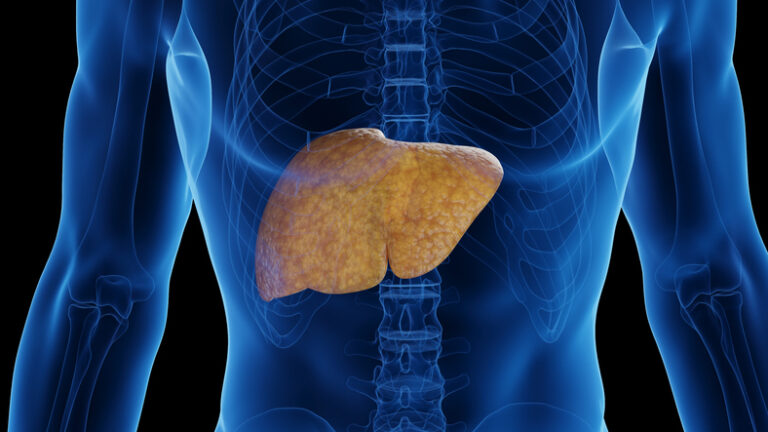Studies have long shown that if you carry two copies of the apolipoprotein E (APOE) 4 gene, your chances of developing Alzheimer’s disease are much higher. Now, researchers say in a new study that gene pair isn’t just a risk factor, but a genetic form of the disorder.
With two APOE4 genes, you’re almost certain to develop Alzheimer’s, and you’ll likely start getting symptoms at an earlier age, according to new findings published in Nature Medicine. With the stronger link between APOE4 and Alzheimer’s, the study’s authors say different ways to help prevent and treat the disease may be needed.
What do the findings mean for your Alzheimer’s risk, and should you get tested for the APOE4 gene? Here are answers from neurologists Ayesha Sherzai, MD, and Dean Sherzai, MD, PhD, the co-directors of the Alzheimer’s Prevention Program at Loma Linda University in California. The Sherzais also host Your Brain On, a podcast about brain health.
Ayesha Sherzai: It’s a genetic configuration mostly responsible for lipid transport between cells. There are certain fat molecules that need to be transported in and out of the cell. Cells essentially require fats for its infrastructure, for the production of different chemicals, and for its internal functioning. Receptors on the cells allow certain fats and proteins to go in and out of it. These are regulated by the APOE4 genotype.
Ayesha Sherzai: Yes, everyone has APOE genes, whether APOE2, APOE3, APOE4, or a combination of two types.
Some of the genes work very well. For example, if you have a copy or two copies of APOE2, you don’t tend to have abnormalities of fat metabolism. When you have an APOE3, it’s essentially a wash: You’re neither protected nor harmed. But APOE4 does a really bad job. If you have a copy of APOE4, you tend to have abnormalities of this lipid transport. If you have two copies of APOE4, that’s even worse.
For Alzheimer’s, we know some genes are 100% penetrant genes, meaning carriers are very likely to develop features of the disorder. [The genes] are: APP, PSEN1 and PSEN2. If you have those genes, you’re going to get Alzheimer’s before the age of 65. You can push it back with lifestyle [changes], but it’s almost guaranteed you’re going to get it. In the past, APOE4 was the next highest penetrance. We thought it was about 50% or so, meaning about 50% of people who live to 85 and have two copies of APOE4 will get the disease.
This study showed that APOE4 may be higher penetrance than we thought. The findings show APOE4 genes have more influence on whether you develop Alzheimer’s.
Dean Sherzai: No. It’s not 100%. It’s just highlighting the strong association.
The researchers found that by age 65, at least 95% of people with two copies of APOE4 had abnormal levels of beta amyloid in their spinal fluid, a key early feature of Alzheimer’s disease. Seventy-five percent of people with two copies of APOE4 had positive brain scans for amyloid.
Dean Sherzai: In the general population, about 15% to 25% of the population have one APOE4 gene and about 2% of the population have two. Anywhere between 40% to 50% of people who develop Alzheimer’s, especially late-onset Alzheimer’s, have APOE4 genes in relationship to the disease. (Editor’s note: Late-onset Alzheimer’s is when Alzheimer’s symptoms start when someone is in their mid-60s or older.)
Exercise can also reduce your risk. But we don’t mean just walking in the neighborhood. The kind of exercise that really gets you tired has a significant effect on the brain, particularly strength training. Studies show that people with pre-dementia who did leg strengthening reduced their chance of dementia by more than 40%.
We also know that mental activity is an incredible protector because it connects neurons. We have 87 billion neurons, and each of them can make a few connections or as much as 30 to 50,000 connections. What determines that is exercise and mental activity. Keep yourself engaged, keep yourself challenged, push yourself around your passions. That’s what keeps the connectivity.
Ayesha Sherzai: We always start thinking about our brain when the word, “Alzheimer’s” comes up. You shouldn’t wait to think about brain health at a particular impasse or at a certain age. Alzheimer’s disease does not start with the first sign of memory problems. It’s a condition where the pathological changes actually happen in the brain 20 to 30 years before the first sign of memory problems. So, for those of us in our 30s, 40s, and 50s, we have to make sure we address our risk factors now so we could have a healthy brain later on.
Talk to your physician about your cholesterol levels. Understand your blood pressure levels and your hemoglobin A1c. Understand what your numbers are so you can adjust them with lifestyle changes and potentially with health care treatments, like medication, if needed.
Dean Sherzai: It’s about building resilience. Your brain is a huge building with pillars. After age 20, we are either knocking down pillars or we’re building more pillars that strengthen that brain. For a great majority of the population, and even those who have genetic risk, the sooner you start building pillars, the more likely you can push back Alzheimer’s or completely avoid it altogether.
Listen to the Sherzais discuss Alzheimer’s on WebMD’s podcast.





